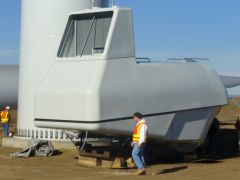Water Test: Is Your Backyard Pool Eco-Friendly?
Many people want a pool on their property. It is a great investment for year-round fun as well as property value. As you consider incorporating one into your landscape, you may be thinking about the environmental issues as well as sustainability associated with it. Is is possible to have a pool that is eco-friendly? With the right knowledge and tips you can make an existing pool better for the environment overall.
Solar Pool Heater
According to the U.S. Department of Energy, using solar pool heating is a very cost-effective method of using solar energy. This may require a high initial investment, though. Depending on the climate, a solar pool heater will pay for itself in a short period of time. This is accomplished by lower energy costs. In some situations, a pool may require more heating than a solar heater can provide. In this case, a pool owner can choose to combine their solar heater with a convention pool heater which will still make their energy use lower.
Eco-Friendly Landscaping
Many owners are pleased to discover how they choose to landscape around their pool impacts the environment as well. Having plants nearby can help. Experts recommend the use of plants that are low-maintenance and can survive under drought conditions. It's also important to use plants native to where the pool is located. Trees and shrubs, when used correctly, can act as windbreaks and offer shade. This will decrease the evaporation of the pool's water, as well as its heating requirements.
Reduce Chlorine
Some pools are designed to use plants and not chemicals to sanitize the water and others are able to decrease or eliminate the use of standard chlorine. There are pool sanitation methods that involve ozone as well as salt water as well. Pool professionals at Bullfrog Spas recommend owners be consistent when it comes to keeping their pool clean. This will decrease the need for any extra needs for chemical sanitation.
Ozone & Salt
An ozone sterilization system is designed to eliminate bacteria in a pool using electricity. It eliminates swimming pool contaminants by releasing oxygen atoms. These atoms will join with any foreign substance in the pool, such as bacteria and algae, and remove them. Salt can be used to sanitize pools as well. The salt turns into a hypochlorous acid and eliminates any algae or bacteria.
Variable Speed Pool Pump
Experienced pool professionals tell their clients that pool pumps use even more energy than their pool's heater. It is recommended that pool owners use a variable speed pool pump. They are very popular when constructing new pools or renovating an existing pool. What makes them so efficient is their ability to only use as much energy as is needed to accomplish a certain task.
Energy Efficient Lighting
A pool owner has many different lighting options. Many of them are able to use much less energy than incandescent lighting. A very popular choice is LED lighting. Pool owners like this lighting because it is stylish as well as efficient. Solar lighting is excellent for illuminating pathways to the pool or around it as well.
Automated Pool Systems
These systems are designed to only run the water features or a pool's heater when necessary. An automated system will save you money by reducing energy costs. This type of automation also makes it easier to make certain the pool is properly maintained.
Hot Tubs & Spas
Sanitizers can be used to clean hot tubs and spas. The most popular ones are bromine and chlorine. There is also an effective treatment that is non-chlorine known as spa shock. You can find more information for a hot tub water care guide at professional sites as well.
It is possible to maintain a pool, spa, or hot tub with methods that are safe to use and friendly to the environment. Researching what method works best you’re your situation can pay off in reduced energy costs as well as having an eco-friendly pool that doesn’t ruin the environment.





0 Comments
Recommended Comments
There are no comments to display.